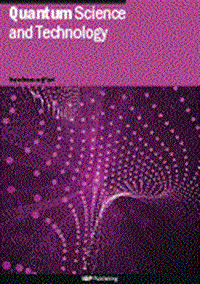具有部分状态表征的量子密钥分发的数值安全性分析
IF 5
2区 物理与天体物理
Q1 PHYSICS, MULTIDISCIPLINARY
引用次数: 0
摘要
数值安全性证明为评估量子密钥分发(QKD)协议的秘密密钥生成速率提供了一种通用的方法。然而,现有的方法通常需要完美的源表征,由于存在不可避免的编码缺陷和侧信道,这在实践中是不现实的。在本文中,我们介绍了一种基于半确定规划的新型安全证明技术,该技术可以在只有部分发射状态信息可用的情况下评估准备-测量和测量设备无关的QKD协议的密钥速率,与现有的数值技术相比,显着提高了适用性和实际相关性。我们证明,我们的方法可以在可实现的秘密密钥速率方面优于当前解决部分状态表征的分析方法,特别是对于具有非量子比特编码空间的协议。这代表了在弥合理论安全证明和实际QKD实现之间的差距方面迈出的重要一步。本文章由计算机程序翻译,如有差异,请以英文原文为准。
Numerical security analysis for quantum key distribution with partial state characterization
Numerical security proofs offer a versatile approach for evaluating the secret-key generation rate of quantum key distribution (QKD) protocols. However, existing methods typically require perfect source characterization, which is unrealistic in practice due to the presence of inevitable encoding imperfections and side channels. In this paper, we introduce a novel security proof technique based on semidefinite programming that can evaluate the secret-key rate for both prepare-and-measure and measurement-device-independent QKD protocols when only partial information about the emitted states is available, significantly improving the applicability and practical relevance compared to existing numerical techniques. We demonstrate that our method can outperform current analytical approaches addressing partial state characterization in terms of achievable secret-key rates, particularly for protocols with non-qubit encoding spaces. This represents a significant step towards bridging the gap between theoretical security proofs and practical QKD implementations.
求助全文
通过发布文献求助,成功后即可免费获取论文全文。
去求助
来源期刊

Quantum Science and Technology
Materials Science-Materials Science (miscellaneous)
CiteScore
11.20
自引率
3.00%
发文量
133
期刊介绍:
Driven by advances in technology and experimental capability, the last decade has seen the emergence of quantum technology: a new praxis for controlling the quantum world. It is now possible to engineer complex, multi-component systems that merge the once distinct fields of quantum optics and condensed matter physics.
Quantum Science and Technology is a new multidisciplinary, electronic-only journal, devoted to publishing research of the highest quality and impact covering theoretical and experimental advances in the fundamental science and application of all quantum-enabled technologies.
 求助内容:
求助内容: 应助结果提醒方式:
应助结果提醒方式:


